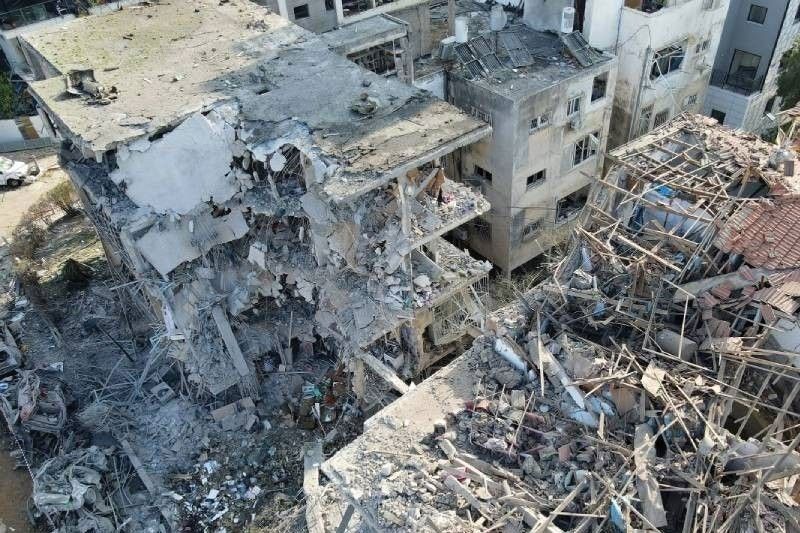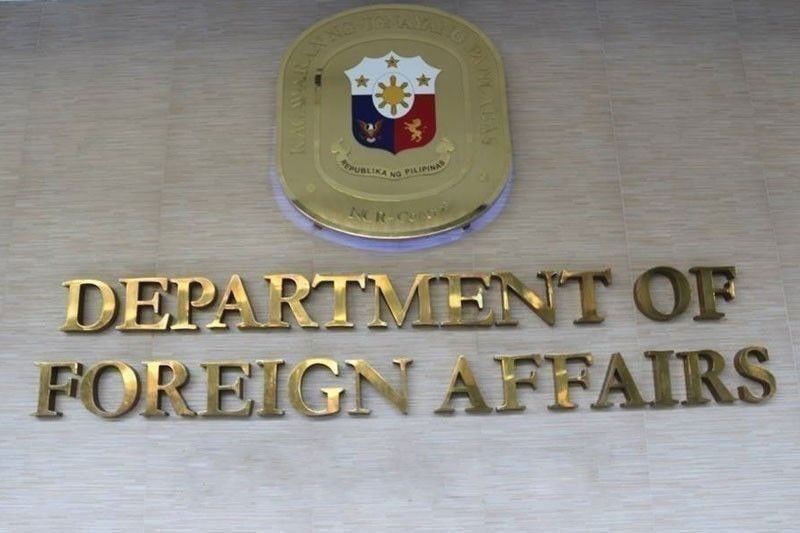
Upgrade to High-Speed Internet for only ₱1499/month!
Enjoy up to 100 Mbps fiber broadband, perfect for browsing, streaming, and gaming.
Visit Suniway.ph to learn
Philippine's former president Rodrigo Duterte (C) addresses a proclamation rally for his senatorial candidates of the Partido Demokratiko Pilipino party ahead of the midterm elections, at a social club in Manila on February 13, 2025.
AFP / Ted Aljibe
MANILA, Philippines — The International Criminal Court (ICC) said that former President Rodrigo Duterte's continued influence necessitates his arrest, even though he no longer holds office.
In a 15-page warrant of arrest obtained by Philstar.com, the ICC pre-trial chamber backed the ICC prosecutor’s position that the former president’s arrest is essential to ensure his appearance before the international tribunal.
According to the pre-trial chamber, Duterte is unlikely to comply with a court summons, saying that ‘there is no reasonable expectation that he would cooperate with a summons to appear issued by the Court’.
“The Chamber observes that Mr Duterte, even though no longer the President of the Philippines, appears to continue to wield considerable power,” the ICC pre-trial chamber said.
“Mindful of the resultant risk of interference with the investigations and the security of witnesses and victims, the Chamber is satisfied that the arrest of Mr. Duterte is necessary within the meaning of Article 58(1)(b)(i) of the Statute to ensure his appearance before the Court,” it added.
According to a statement from Malacañang on Tuesday afternoon, the warrant was served by Prosecutor General Richard Fadullon to Duterte at the Ninoy Aquino International Airport.
The former president came from Hong Kong for a sortie of his party, PDP-Laban, with Overseas Filipino Workers. The rumors of his arrest first circulated on March 7 when he left the country.
As of writing, Duterte is in the custody of the Philippine National Police at the Villamor Airbase.
Secret warrant
The international tribunal classified the warrant as “secret.”
For these reasons, the chamber hereby…
DECIDES that the warrant of arrest, currently classified as secret, may be communicated, or its existence be revealed, and that the existence of the Prosecution’s application for the present warrant may be mentioned to States, international organizations, or competent persons if required for the execution of the warrant of arrest.
Charges vs Duterte
The international tribunal issued a warrant against the former president for alleged criminal responsibility under Article 25(3)(a) of the Rome Statute.
The warrant pertains to the crime against humanity of murder under Article 7(1)(a), allegedly committed in the Philippines during the specified period.
“For these reasons, the chamber hereby…Issues a warrant of arrest for Rodrigo Roa Duterte, born on 28 March 1945, for his alleged criminal responsibility pursuant to article 25(3)(a) of the Statute for the crime against humanity of murder pursuant to article 7(1)(a) of the Statute, committed in the Republic of the Philippines during the Relevant Period, as set forth in this warrant of arrest,” the warrant read.
Article 25 (3)(a) of the Rome Statue defines individual criminal responsibility for an individual committing a crime:
In accordance with this Statute, a person shall be criminally responsible and liable for punishment for a crime within the jurisdiction of the Court if that person:
(a) Commits such a crime, whether as an individual, jointly with another, or through another person, regardless of whether that other person is criminally responsible;
Meanwhile, Article 7 defines crimes against humanity that can be committed through different means.
In the case of Duterte, the following is stated:
For the purpose of this Statute, “crime against humanity” means any of the following acts when committed as part of a widespread or systematic attack directed against any the civilian population, with knowledge of the attack:
(a) Murder
Official Philippine government records estimate the death toll from Duterte’s drug war at approximately 6,000.
However, both local and international human rights organizations claim the number could be as high as 30,000, primarily involving small-scale drug users and pushers.

 3 months ago
18
3 months ago
18



